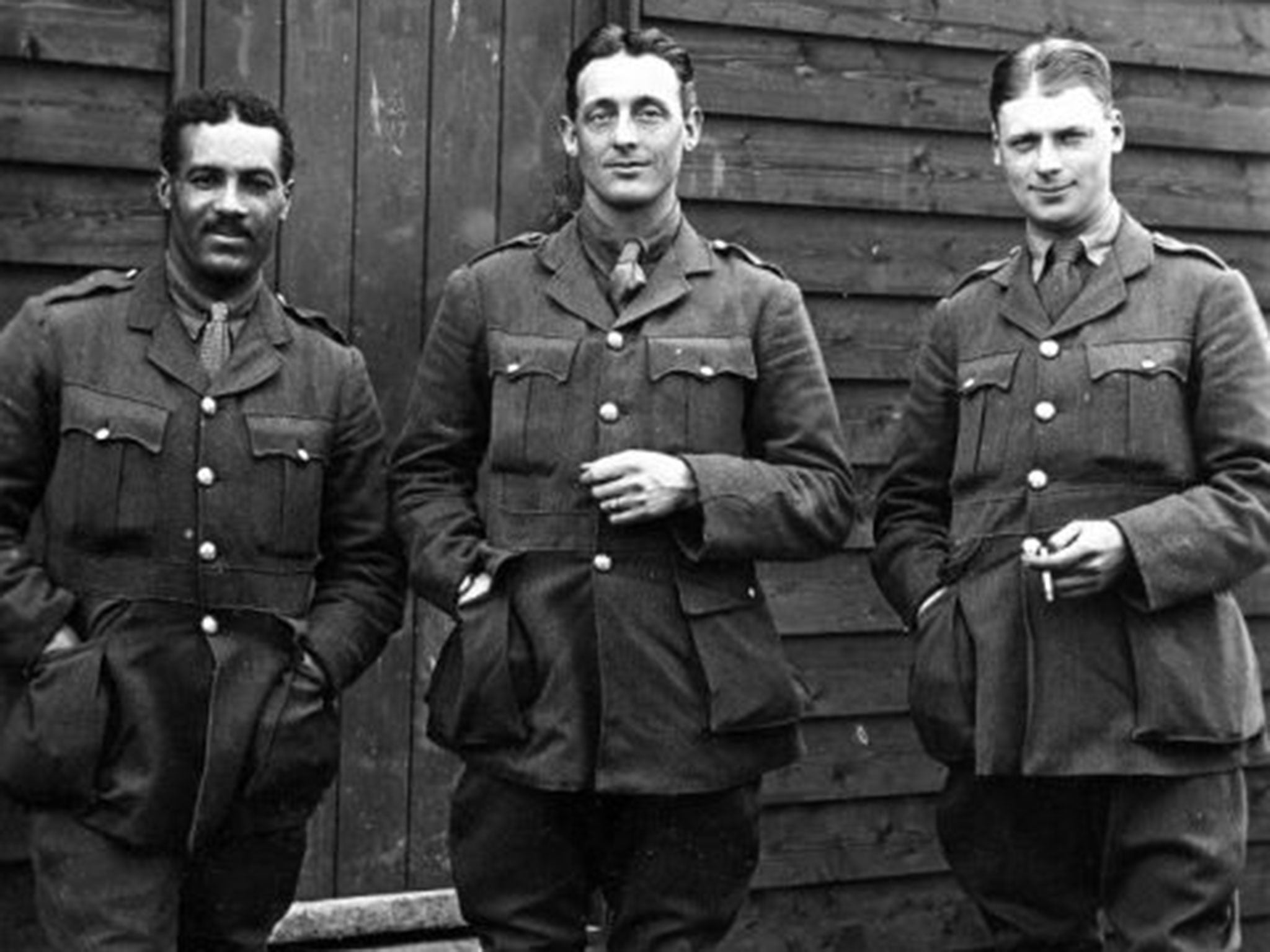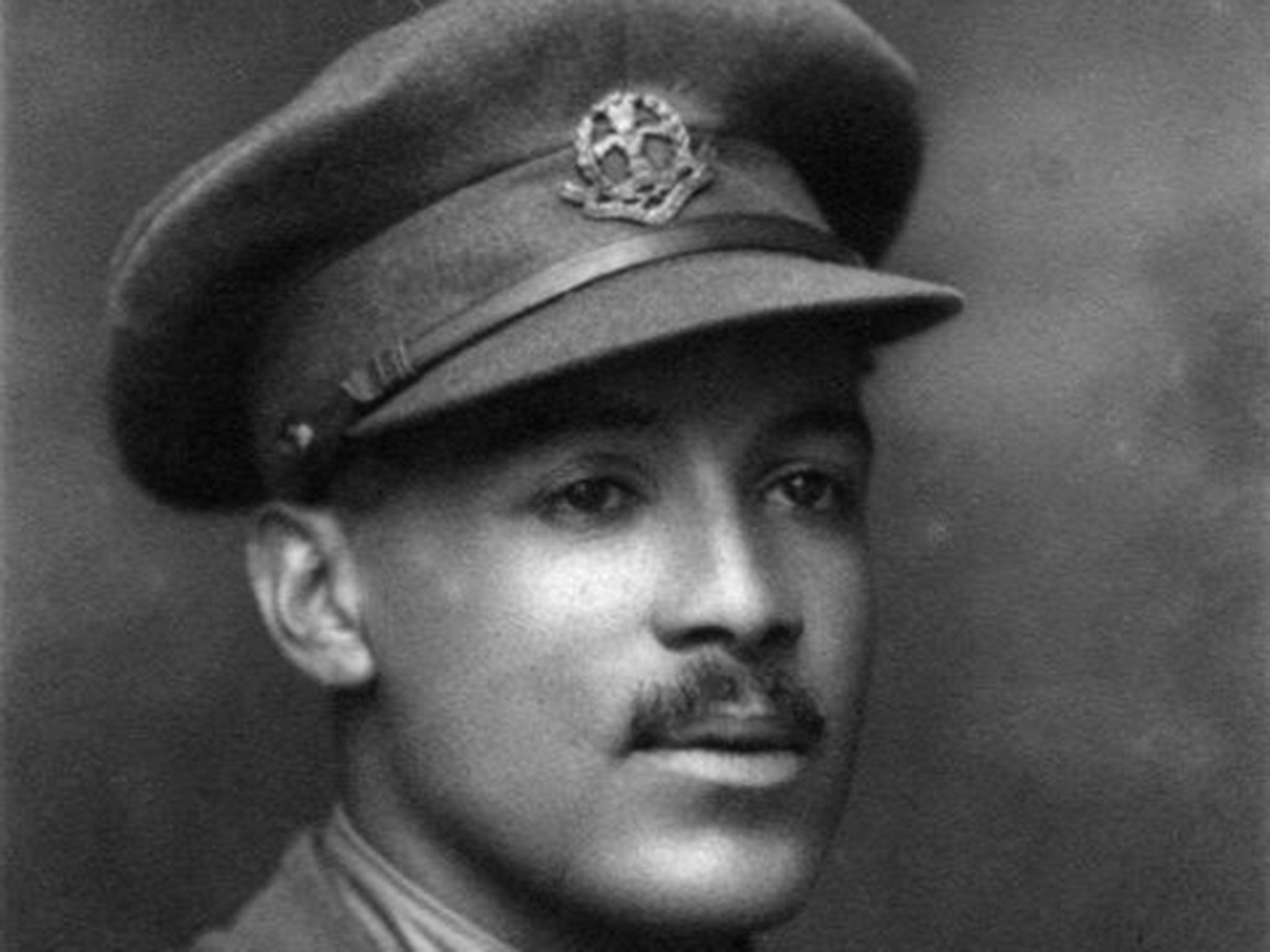A History of the First World War in 100 Moments: The officer who fought prejudice with valour
Walter Tull found fame as a footballer, then made history as Britain's first black officer. Charlie Cooper on a fighter for racial equality

Your support helps us to tell the story
From reproductive rights to climate change to Big Tech, The Independent is on the ground when the story is developing. Whether it's investigating the financials of Elon Musk's pro-Trump PAC or producing our latest documentary, 'The A Word', which shines a light on the American women fighting for reproductive rights, we know how important it is to parse out the facts from the messaging.
At such a critical moment in US history, we need reporters on the ground. Your donation allows us to keep sending journalists to speak to both sides of the story.
The Independent is trusted by Americans across the entire political spectrum. And unlike many other quality news outlets, we choose not to lock Americans out of our reporting and analysis with paywalls. We believe quality journalism should be available to everyone, paid for by those who can afford it.
Your support makes all the difference.Four days into Germany's Spring Offensive, amid the chaos of the British retreat through the Pas-de-Calais region of northern France, a private with the 23rd Middlesex risked life and limb under shell fire to bring back the body of his commanding officer.
The devotion shown by Private Tom Billingham's fruitless attempt pointed to an officer who had inspired huge respect and loyalty. Even more remarkable, in a racially segregated army, was the colour of that officer's skin. Second Lieutenant Walter Tull, whose body was never recovered, was the first black man to be commissioned as an infantry officer in the British Army.
He was born in Folkestone in 1888, the son of a Barbadian carpenter and a Kent farm labourer's daughter. His grandmother had been a slave. In a short life, Tull made history not only in the army, but in England's nascent Football League as well. As a forward for both Tottenham Hotspur and Northampton Town, he defied a cruel start (orphaned at nine, and raised in an East End children's home with his brother Edward) to become only the second black player to compete in the top division.
The sight of a black man lining up against (and running rings around) the league's best defences was a novel one before the war. All too often Tull became, in the words of one reporter, "the butt of the ignorant partisan". When war broke out, Tull was among the first players to volunteer, joining a special footballers' battalion. In November 1915, setting out from his hometown of Folkestone, it crossed the channel to France.

Tull soon distinguished himself, notably at the Somme. The orphanage had made him disciplined, football had honed his fitness, and after one year, he was recommended for officer training, despite the 1914 Manual of Military Law barring a "negro or person of colour" from exercising "any actual command of power".
After completing his training in 1917, he returned to active service as a commissioned officer. Deployed to the Italian front with the 23rd Middlesex, he led his men in a daring raid across the frozen river Piave in January 1918, when he was singled out for his "gallantry and coolness" by the division's major general.
After his death, three months later, a comrade wrote to his brother to say that Walter had been recommended for a Military Cross – a decoration he never received. Campaigners and Tull's living relatives are still pushing for the honour to be awarded.
A memorial at Northampton Town's Sixfields Stadium carries a dedication by historian and Tull biographer Phil Vasili, which eloquently pleads the case: "Through his actions, Tull ridiculed the barriers of ignorance that tried to deny people of colour equality.... His life stands testament to a determination to confront those people and those obstacles that sought to diminish him and the world in which he lived. It reveals a man, though rendered breathless in his prime, whose strong heart still beats loudly."
Tomorrow: The Red Baron is shot down
The '100 Moments' already published can be seen at: independent.co.uk/greatwar
Join our commenting forum
Join thought-provoking conversations, follow other Independent readers and see their replies
Comments